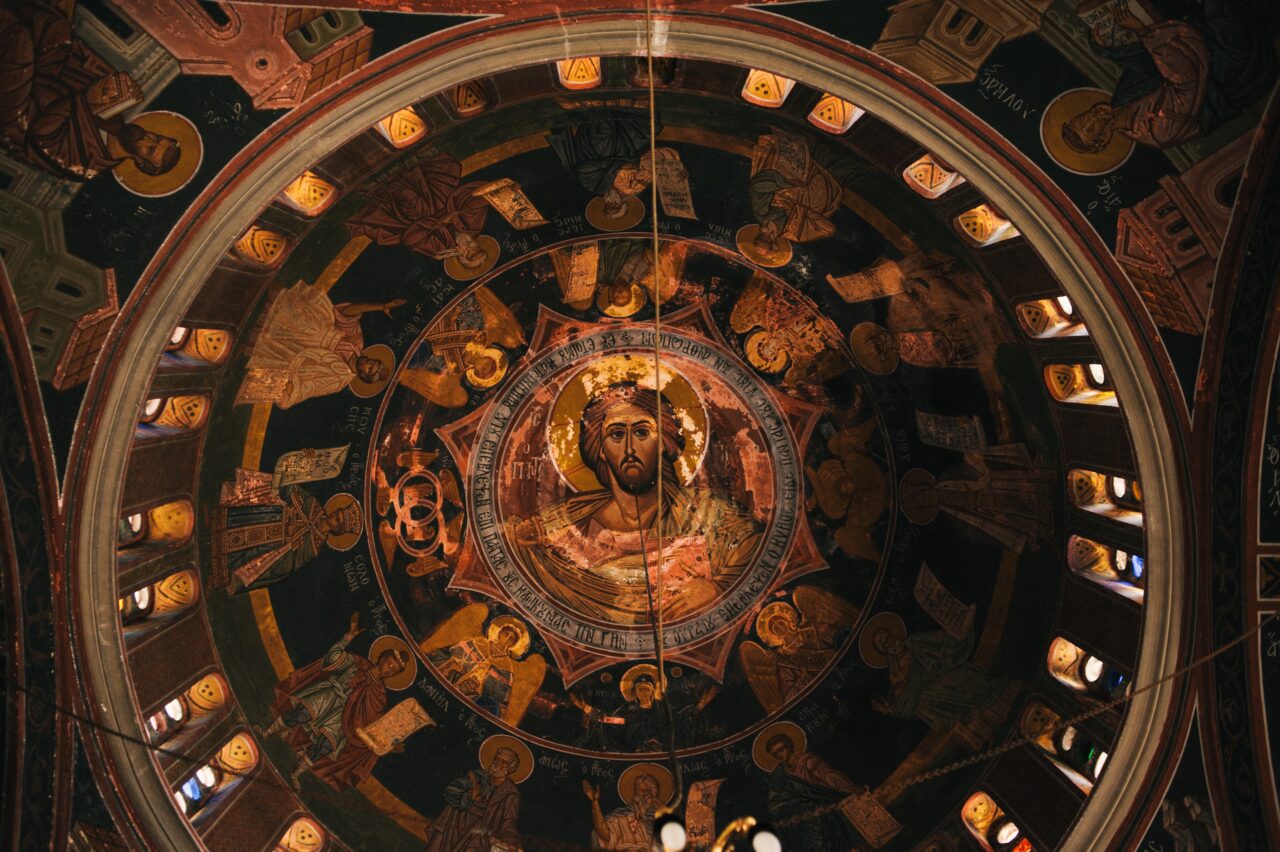Objective of the Inter-Institutional Postgraduate Program is the study and research of the various historical and cultural data of the Orthodox Christian life, as they were produced in the historical course of the Church of Greece.
Programme director: Konstantinos Christou
Secretariat: Euthymia Kyratzi
T: +30 2310 996682
M: ekyratz@past.auth.gr
W: https://hchc.past.auth.gr
Object
The object of the Inter-Institutional Postgraduate Program, which operates mainly in the facilities of the School of Social Theology and Christian Culture of the Faculty of Theology of the AUTH and secondarily in those of the School of Social Theology and Religion of the Theological Faculty of the National and Kapodistrian University of Athens, is the study and research of the various historical and cultural data of the Orthodox Christian life, as they were produced in the historical course of the Church of Greece.
Purpose of the Program
The purpose of the Program is to cultivate and promote scientific knowledge and research in the fields of History and Culture, as they were formed in the Greek area, to provide postgraduate students with specialized knowledge in them, with the aim of more fully preparing them for a successful scientific and professional career.
Goals
The main objectives of the Inter-Institutional Postgraduate Program.
The program aims to:
i) Τhe provision of high level postgraduate studies.
ii) Τhe training of specialized graduates with a solid theoretical background in the Science of History and Culture developed in the Greek Church, as well as the interdisciplinary ability to deal with complex practical problems in these fields.
iii) The consolidation of the self-confidence of postgraduate students through the provision of specialized knowledge and systematic practical training in the synthetic approach of the above knowledge subjects.
iv) The promotion of interdisciplinary research through teaching and scientific dialogue on complex research subjects related to Ecclesiastical History and the Culture of the Greek Church, as well as through the preparation of high-level relevant postgraduate theses.
v) The development of critical and research skills required for doctoral level studies.
vi) The provision of training and knowledge specialization concerning:
- The course of Christianity in the Greek area, the establishment and organization of the Church of Greece.
- The forms and dimensions of culture, which came from the Orthodox Christian religious tradition or were directly related to it. The aim is on the one hand the production of academic work in these fields and on the other hand the understanding and interpretation of the various forms of the modern culture of the Greek people, as well as their interactions with other Orthodox countries, as well as with other religious traditions.
vii) The specialization of theologians, historians, jurists, philologists, sociologists, political scientists, diplomats, Church officials and government officials with subject-related knowledge to be able to offer high-quality professional research and scientific work in general, as well as to be executives in organizations related to the fields of the Inter-institutional Postgraduate Program.
Philosophy
Guiding philosophy of the Inter-Institutional Postgraduate Program is on the one hand to provide postgraduate students with a solid foundation, modern knowledge, methods and basic principles that will make them capable of continuous training, improvement and production of creative thinking and innovative spirit in order to cultivate in them the critical and practical skills that society requires, as well as an ethically responsible scientific professional and research activity.
The obligation of all the operating factors of the Inter-Institutional Postgraduate Program is to ensure the quality and continuous improvement of every aspect of the program, the educational process and the research and to promote cooperation with related Programs and Centers at home and abroad.
Finally, a focused Postgraduate Program makes society itself an essential interlocutor of scientific research, and in this way constitutes an essential factor in the development of theological, historical and cultural self-awareness.

